Enviros and Nez Perce Tribe join forces in claim that board didn’t provide appropriate public notice before making significant revisions
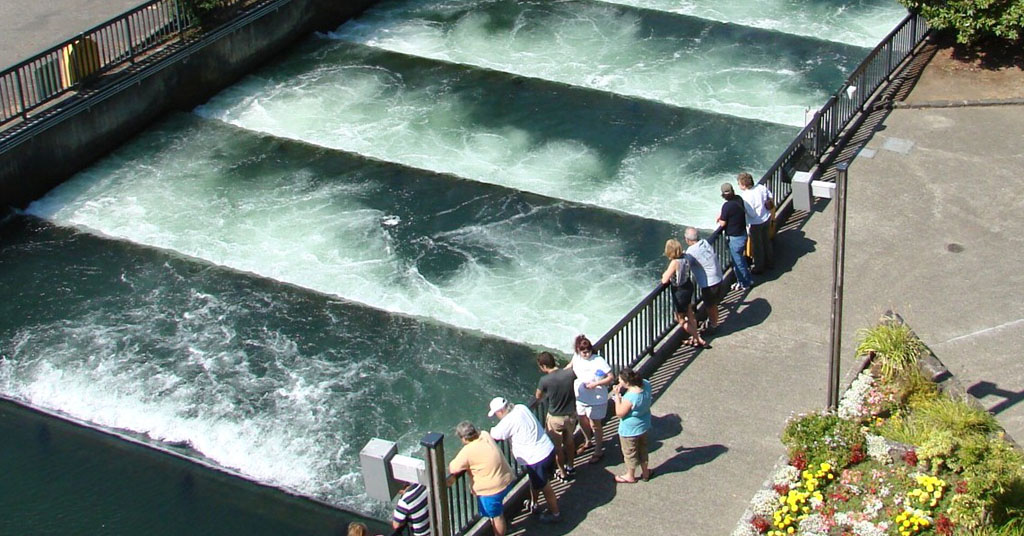
Getting by: This fish ladder at Bonneville Dam on the Columbia River helps aid passage of migrating fish. So do tanker trucks. Okay? Photo: Don Graham/Flickr
By Nathan Gilles. September 6, 2023. Last week we reported on a chorus of objections to a recent policy change by the Oregon Department of Fish and Wildlife that changed the state’s definition of “fish passage.”
Now the issue is heating up.
On Tuesday, a group of seven environmental organizations and the Nez Perce Tribe filed a lawsuit related to the unpopular revisions to Oregon salmon policy.
The lawsuit, filed with the Oregon Court of Appeals, claims that sometime between Oct. 21 and Dec. 16, 2022, ODFW “fundamentally altered” sections of Oregon’s Fish Passage Law related to migrating fish.
However, the lawsuit isn’t directed at ODFW or its unpopular revisions.
Instead focuses on the public commission that approved those revisions.
The lawsuit alleges the Oregon Fish and Wildlife Commission violated Oregon law by not providing sufficient public notice before voting to approve ODFW’s revisions at a Commission meeting held on Dec. 16, 2022.
The revisions took effect on Jan. 1, 2023, and concern how “fish passages” are now defined under Oregon law.
Fish passages are engineering structures, including fish ladders, that allow migrating salmon and steelhead to voluntarily swim past dams and other artificial obstructions.
Or, at least that was the state’s previous legal definition.
Oregon’s new definition of “fish passage,” rewritten by ODFW and made law by the ODFW Commission, now includes involuntary “trap collection and transport” procedures, otherwise known as trap-and-haul.
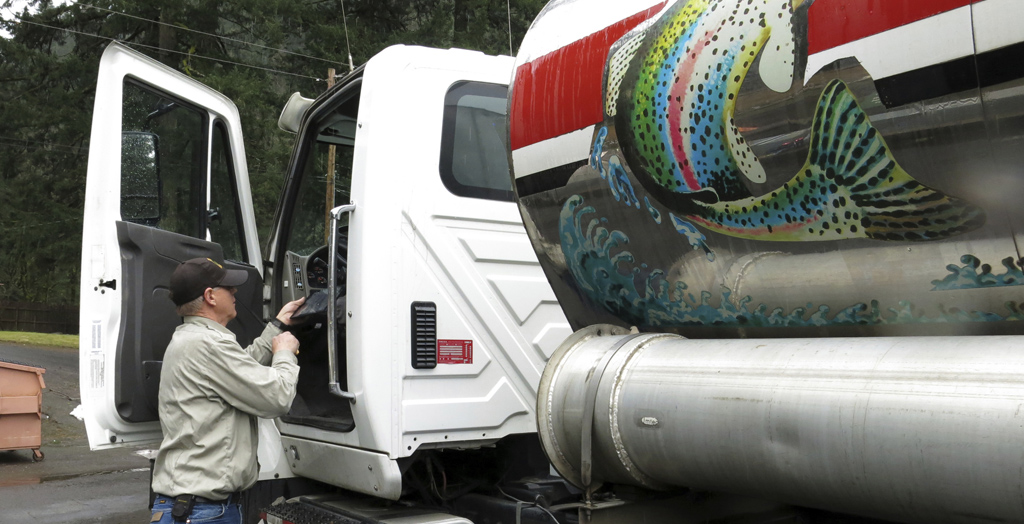
Long road ahead: Water tankers, like this one transporting juvenile coho salmon from Cascade Fish Hatchery in Cascade Locks, Oregon, now count as “fish passages.” Photo: AP Photo/Gillian Flaccus
Trap-and-haul procedures involve people catching and then moving fish past obstructions.
Trap-and-haul has been shown to stress and disorient migrating salmonids and is generally considered to be a poor substitute for volitional fish passages.
Critics of the new definition have claimed it will set back efforts to protect native threatened and endangered salmon and steelhead populations.
The lawsuit contends that including involuntary trap-and-haul in the legal definition of “fish passage” constitutes a significant change to existing policy.
Because of the significance of the change, the lawsuit argues, the ODFW Commission should have provided more public notice than it did.
“The core of our argument is there was not sufficient notice related to this degree of change to the definition of fish passage to allow the public and Tribal governments a reasonable opportunity to provide input,” says Miles Johnson, legal director at Columbia Riverkeeper, which joined the lawsuit on Tuesday.
The public notice the Commission provided appears to have been an agenda item and a series of attached documents posted to the ODFW Commission’s Dec. 16, 2022, meeting agenda webpage.
“Our view is if you’re going to make a major change to a key definition of a statute about fish passage, you should tell people you are doing it and not expect them to find it when it’s buried on the backend of the agency’s website,” says Johnson.
Major change to key definition
According to official documents, the definition of “fish passage” remained largely unaltered until sometime after Oct. 21, 2022.
However, by the time of the Commission’s vote on Dec. 16, 2022, ODFW staff had changed the definition of “fish passage” to include involuntary trap-and-haul.
“The biological significance of volitional passage versus trap-and-haul is pretty clear. There are real problems with trap-and-haul,” says David Moskowitz, executive director of the Conservation Angler, which joined the lawsuit on Tuesday.
Moskowitz says the public notice around the revised definition was “inadequate.”
In fact, Moskowitz says he didn’t know that ODFW had made revisions prior to the December 2022 meeting. Instead, he says he thought the Commission was voting to approve the previous October draft, which he says his organization supported.
“When we learned what happened, it was disconcerting,” says Moskowitz.
[perfectpullquote align=”full” bordertop=”false” cite=”” link=”” color=”” class=”” size=””]ODFW has downplayed the significance of the revisions.[/perfectpullquote]
Moskowitz wasn’t the only one caught off guard.
As Columbia Insight reported in February, ODFW’s revisions and the Commission’s decision to approve them over last year’s holiday season angered and surprised salmon advocates.
In a joint Jan. 10, 2023, letter to the ODFW Commission, lawyers for the Nez Perce Tribe and the Confederated Tribes of the Umatilla Indian Reservation called the changes to Oregon salmon policy “concealed, late-hour, no-public-notice revisions.”
The letter ends with the words “our Tribes reserve the right to seek all appropriate legal remedies.”
In a written statement sent to Columbia Insight, Shannon Wheeler, chairman of the Nez Perce Tribe, called the lawsuit a “necessary challenge.”
“After a two-year public input process to update the rule, and after the publication of a final proposed update, agency staff secretly rewrote the core definition of fish passage, and inserted an entirely new authority for ODFW to decide when volitional fish passage is required,” wrote Wheeler. “The Nez Perce Tribe has a strong relationship with Oregon, and we’re confident that neither Oregonians nor senior Oregon officials would have condoned these changes and the way they were done if they’d been aware.
“We’d hoped Oregon would simply remove these unlawful late revisions from the published product of the public process, but since that has not happened, a court challenge and the daylight that involves is required. Doing business under cover of darkness is unacceptable agency conduct.”
In February 2023, Columbia Riverkeeper and 14 other nonprofit organizations, many of which are currently suing, sent an equally scathing letter to the Commission. The letter refers to ODFW’s revisions as “last-minute changes.”
UPDATE as of September 8, 2023:
Also on Tuesday, the Confederated Tribes of the Umatilla Indian Reservation filed a separate lawsuit directed at the ODFW Commission.
Similar to the Nez Perce’s lawsuit, the Umatilla lawsuit claims both that ODFW’s revisions were significant and that public notice was inadequate.
The lawsuit reads: “These new revisions substantively changed core principles, definitions, and procedures of the Oregon Fish Passage Rules and did not go through public notice and comment.”
Timeline of public notice
The lawsuit filed on Tuesday by the various environmental groups and Nez Perce tribe builds upon these earlier claims that ODFW’s revisions were “unlawful” due to a lack of public notice.
To make this argument, the lawsuit lays out a timeline showing how public notice was handled from the start of the fish-passage rule-making process to its end at the Dec. 16, 2022, ODFW Commission meeting.
Rulemaking started in 2021, when ODFW created the Fish Passage Task Force as part of a larger public process to update Oregon’s fish passage rules, according to the lawsuit.
From 2021 to 2022, the state held 20 public meetings related to proposed revisions.
By August 2022, a “final draft” of these early revisions was submitted for public review and comment. Comments were then reviewed by the Fish Passage Task Force at the group’s Oct. 7, 2022, meeting.
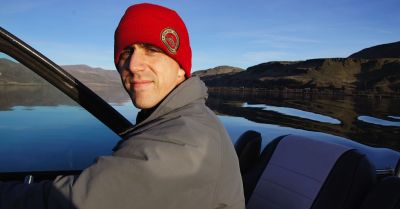
Floating a legal challenge: Miles Johnson of Columbia Riverkeeper. Photo: Columbia Riverkeeper
On Oct. 21, 2022, ODFW uploaded the Task Force-approved revisions to the Oregon Secretary of State website for publication. This included an official “Notice of Proposed Rulemaking.”
This Oct. 21, 2022, draft includes a minor change to the definition of “fish passage,” but one that does not alter the meaning of the term, according to the lawsuit. Notably absent is any mention of trap-and-haul.
By all accounts, these and other early revisions were popular among salmon advocates.
In February, Columbia Riverkeeper’s Johnson told Columbia Insight that these early revisions “were good and needed to be done.”
In their Jan. 10, 2023, letter to the ODFW Commission, lawyers for the Nez Perce and Umatilla wrote that early fish passage revisions “continued the long-standing Oregon approach to favoring true volitional fish passage” and for that reason “our Tribes were not concerned with the rule revisions.”
In her statement to Columbia Insight, Wheeler of the Nez Perce Tribe referred to Oregon’s previous fish passage rules as “a model of sound policy and protection for native migratory fish.”
However, the proposed fish passage revisions that were later uploaded to the December 2022 meeting agenda included ODFW’s new definition of “fish passage” that contained “trap collection and transport,” aka trap-and-haul.
The definition reads: “‘Fish passage’ means the ability, by the weakest native migratory fish and life history stages determined by the Department to require passage at the site, to move either volitionally or by trap collection and transport with minimal stress, minimal delay, and without physical or physiological injury upstream and downstream of an artificial obstruction.” (Italics have been added and Oregon Administrative Rule numbers have been removed from this quote for clarity.)
These revisions were not accompanied by an additional Notice of Proposed Rulemaking.
Instead, the Notice of Proposed Rulemaking uploaded to the December 2022 Commission meeting webpage is the same notice posted by ODFW in October 2022.
Public records kept confidential
However, what’s not mentioned in the lawsuit is how ODFW made its revisions.
As Columbia Insight reported last week, key fish passage revisions most likely occurred after Nov. 17, 2022. That’s the date ODFW staff reached out to the Oregon Department of Justice for legal advice concerning proposed revisions, according to released public documents.
ODFW staff then made key revisions to Oregon law with the Oregon Department of Justice acting as the state agency’s legal counsel, according to documents obtained by Columbia Insight.
ODFW and the DOJ have refused to release further public documentation related to revisions made during this period, claiming the records are protected by attorney-client privilege.
ODFW representatives have downplayed the significance of the revisions made by the agency.
“We don’t believe this was a substantive change at all,” Shaun Clements, assistant administrator for Inland Fisheries at ODFW, told Columbia Insight in February.
Greg Apke, ODFW’s current acting Fish Screens and Fish Passage Program manager and former Statewide Fish Passage Program lead at the time the revisions were made, has publicly downplayed critics’ concerns, including claims that his agency made revisions without appropriate public notice.
In a written statement sent to Columbia Insight and published last week, Apke wrote: “This process (as with other Commission rule-making) included public notice of the draft fish passage rules that were published at least two weeks prior to the Commission hearing but changes to rules can occur up until the Commission makes its final decision at the Commission meeting as a result of consideration of both staff and public input on the noticed draft and proposals raised at the Commission meeting public hearing.”
Apke could not be reached for comment for this story.
Michelle Dennehy, communications coordinator for ODFW, responded in a text that the agency does not comment on pending litigation.
Commission holding the bag
But while the revisions were made by ODFW, it’s the ODFW Commission that’s named in the lawsuit, not ODFW.
That’s because the Commission, not ODFW, is ultimately responsible for whether or not there was sufficient public notice, says Columbia Riverkeeper’s Johnson.
Johnson says this is unfortunate.
“I am not sure if the Fish and Wildlife Commission had any idea what the new [fish passage] rule was or its implications,” he says.
Commission Chair Mary Wahl could not be reached for comment.
The lawsuit is a petition for judicial review. This means legal action could end at a judge’s bench, with the court striking down ODFW’s revised rule changes rather than go through a lengthy litigation process.
“I don’t think it’s a completely forgone conclusion that this has to go all the way through litigation, but it could,” says Johnson.
Other groups joining the lawsuit include the Native Fish Society, the Northwest Environmental Defense Center, Oregon Wild and the Pacific Coast Federation of Fishermen’s Associations and the association’s research branch, the Institute for Fisheries Resources.

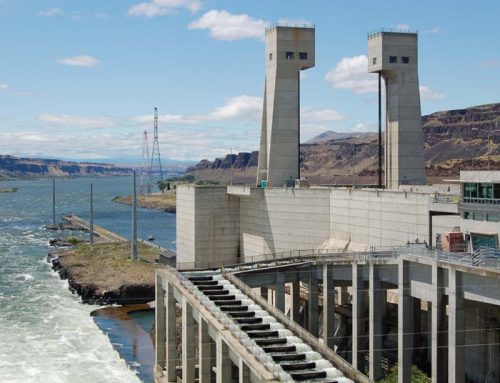
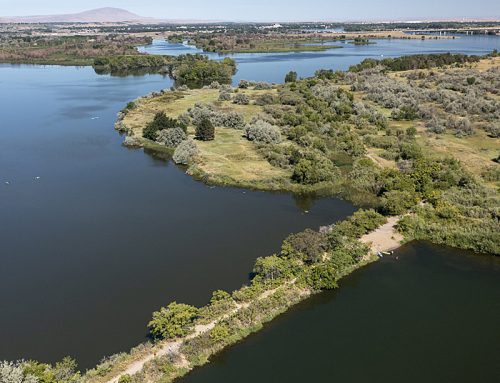
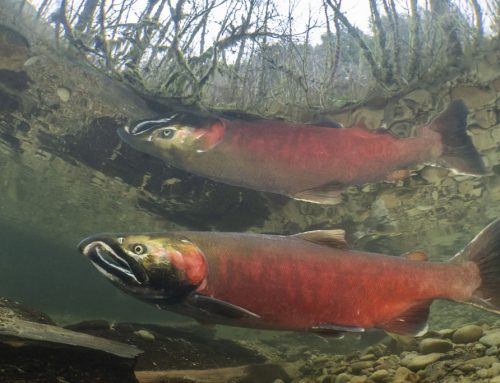
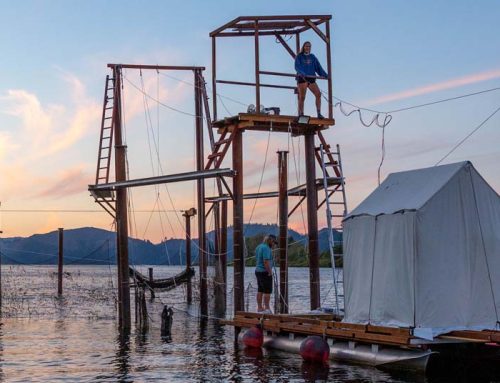
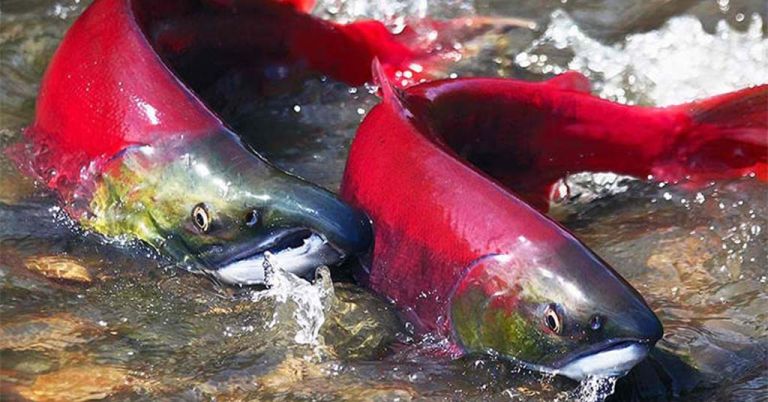
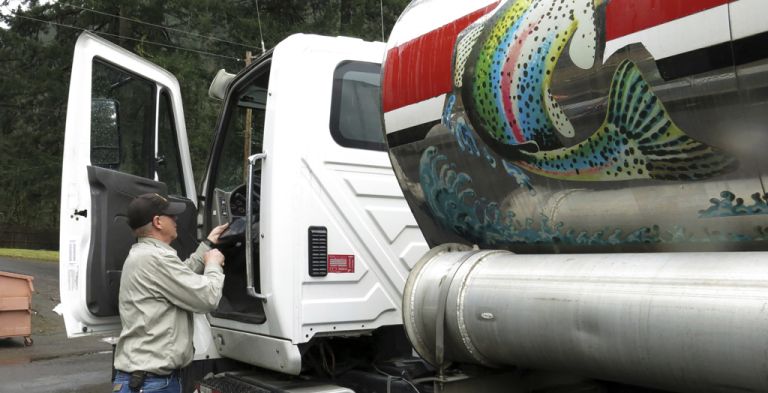
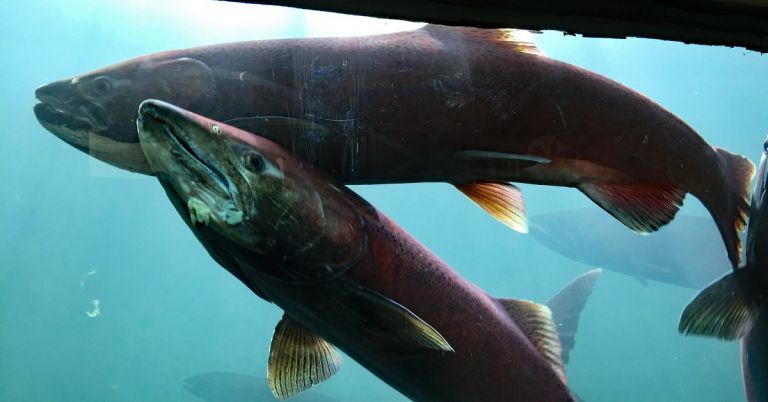
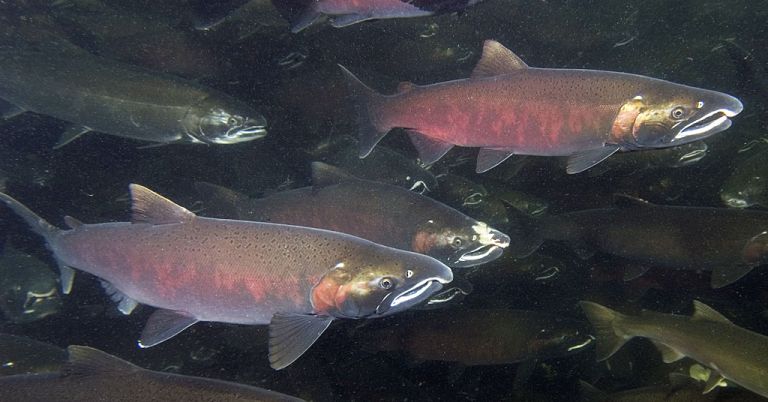


Well written and compelling. Nice work Nathan Gilles.